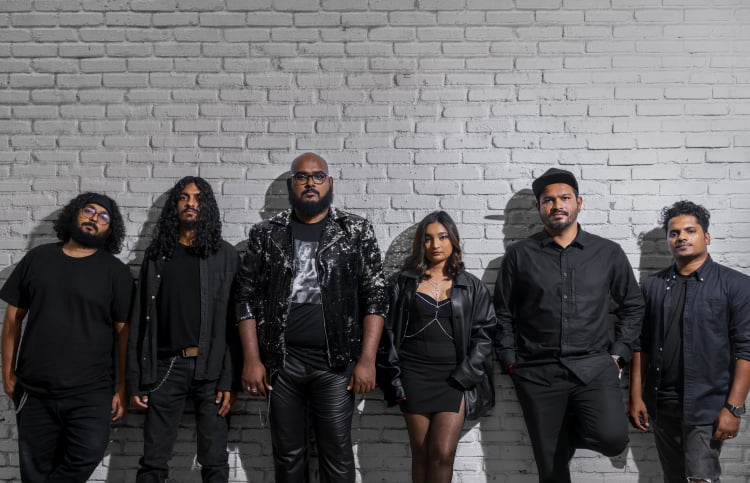
Overview of the Conflict
The recent conflict among local musicians has drawn significant attention, particularly in the lead-up to the highly anticipated release of Skyrock’s debut album titled ‘Samuga.’ This album, set to showcase a variety of innovative musical styles, has been marked by controversy due to unexpected claims made by the boduberu group Harubee. As excitement builds for the impending music show tonight, the atmosphere has been electrified by the escalating tussle over copyright concerning specific song titles.
Harubee has taken a firm stance, asserting their ownership over the titles ‘Samuga’ and ‘Iru,’ which they claim were originally developed by their group. This declaration has created a stir in the local music scene, leading to heated discussions among artists and their supporters. The conflict raises essential questions regarding artistic rights and the implications of title ownership in a collaborative music industry. It emphasizes the potential tension that can arise when different artistic entities intersect, particularly in a vibrant, close-knit community like that of local musicians.
As the situation evolves, the ramifications of Harubee’s claim on Skyrock’s album launch could be substantial. If the boduberu group is successful in asserting their copyright, it may not only affect the release of ‘Samuga’ but could also set a precedent for future disputes regarding song titles. Thus, the local music community watches closely as both parties navigate this intricate and challenging tussle, hoping for a resolution that acknowledges both artistic integrity and the spirit of collaboration.
Harubee’s Claims and Legal Stance
In recent developments within the Maldivian music scene, the boduberu group Harubee has articulated strong claims regarding their copyright rights over the song titles ‘Samuga’ and ‘Iru.’ These titles, integral to their artistic identity, have become a focal point of contention as the group navigates the complexities of copyright law stemming from the 2012 Copyright Act. This legislation was crucial in establishing a framework for intellectual property rights, specifically in the realm of local music, enabling artists to seek protection for their creative works.
Hasan Uswatullah, one of the founding members of Harubee, has asserted that the group has legitimate ownership of the aforementioned titles based on their original composition and prior usage. The claims are not merely assertions of ownership; they highlight a broader concern about the protection of cultural expressions within the music industry. The tussle over these titles underscores the need for a clearer understanding of copyright in the local context, where traditional music forms coexist with contemporary interpretations.
Moreover, Harubee has signaled their intent to take legal action against Skyrock, a competitor in the industry, alleging that the latter has appropriated their song titles without consent. This anticipated complaint raises pressing issues regarding fair use and the rights of artists to control the naming of their works. Harubee’s decision to pursue legal avenues is reflective of a larger trend within the music world, where artists are increasingly vigilant about safeguarding their rights against potential infringements. The outcome of this tussle could have significant implications, not only for Harubee but also for the local music scene’s approach to copyright issues.
Abdullah Esa’s Response
In light of the recent tussle among local musicians regarding the ownership of song titles, renowned artist Abdullah Esa has provided a substantial response. Esa, who has played a pivotal role in the creation of the disputed tracks ‘Samuga’ and ‘Iru,’ asserts his rightful claim to the lyrics and melodies. During public statements, he emphasized that his contributions are not only original but also representative of his artistic vision. Esa remains steadfast in his belief that the songs were developed through a collaborative process with clear agreements in place concerning authorship.
Esa further delves into the complexities of copyright protection, arguing that it is essential for local artists to safeguard their intellectual property against infringement. He cites his legal rights to sell these songs to the label Skyrock, underscoring that such decisions are grounded in legitimate arrangements. His confidence in his legal standing is palpable, as he insists that the recent allegations made by fellow musician Harubee are baseless and stem largely from jealousy regarding Esa’s successful trajectory in the music industry.
In tackling the implications of his assertions, Esa highlights that the tussle over song ownership serves as a mirror reflecting broader issues within the music community. He posits that artists must become more informed about copyright laws to protect their work from potential disputes. Ultimately, he envisions a music landscape where mutual respect reigns, and artists can collaborate without fear of unfair appropriation. Esa’s comprehensive response not only sheds light on his position but also prompts a necessary discussion about the integrity of artistic ownership in the ever-evolving local music scene.
Skyrock’s Defense and Future Implications
In the ongoing tussle regarding the use of song names, Skyrock has formally articulated its defense against the claims put forth by Harubee. In a recent press release, the company emphasized their belief in having adequate legal assurances regarding the release of their tracks ‘Samuga’ and ‘Iru.’ They maintain that these names have been thoroughly vetted to avoid any potential infringement issues, drawing attention to their commitment to adhering to copyright laws which are pivotal in the creative sector.
Skyrock’s position rests on the assertion that it has taken necessary steps to ensure that their branding and song titles do not cause confusion among consumers or infringe upon the rights of other artists. Furthermore, the organization is open to dialogue and is actively seeking ways to resolve the conflict amicably. They have proposed meetings with Harubee to discuss the matter directly, although their efforts have thus far been met with an absence of support from the opposing party. This lack of collaboration raises questions about the future dynamics between the two groups and their standing in the industry.
The broader implications of this dispute extend beyond just the songs in question. Such tussles can have a significant impact on local artists, either by stifling creativity due to fear of legal repercussions or by diverting attention from their musical endeavors to legal battles. It is essential for artists to have a robust understanding of copyright laws and their ramifications, as these factors are increasingly critical in a competitive landscape. As both groups navigate these challenges, the outcomes could shape their reputations and opportunities within the music industry, highlighting the need for rigorous legal awareness among all artists involved.







